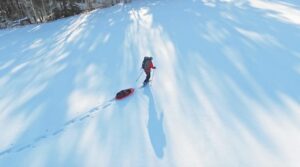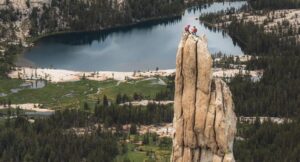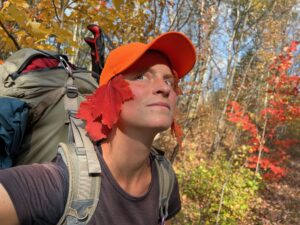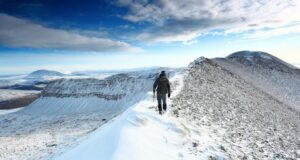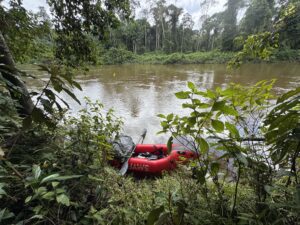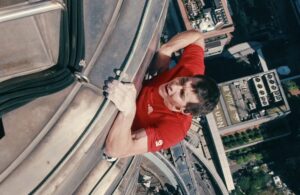Last month, Chaz Powell, 39, and Tim Roberts, 59, completed their 1,120km trek along the Gambia River. Their 46-day expedition took them from the Fouta Djallon highlands of central Guinea through eastern Senegal, finally meeting the Atlantic ocean in the coastal Gambian city of Banjul.
We caught up with Powell to discuss the journey.
If you were averaging roughly 24km a day, the terrain must have been pretty good for walking? Not many boulders along the river or gorge sections to slow you down?
The terrain was pretty good all the way, to be honest. There were many villages and small towns, and small tracks and roads were quite common. This allowed us to cover some good distance. There were a few occasions where the river wound and forced us to detour across bushland and swamp to get back to a decent path. It can’t be compared to the diffficulty of the Zambezi gorges or floodplains, but the intense heat and at times difficult logistics, navigation and language barriers still made it challenging.

On the banks of the Gambia River. Photo: Tim Roberts
How much food and water did you carry? Were there enough settlements along the length of the river to regularly pick up supplies?
We began with around 5kg of dry food each — spaghetti, rice, lentils, powdered soups and stock cubes. This kept pack weight down, but it meant we had to cook on open fires and source whatever we could from the small village shops along the river. Our diet consisted mainly of sardines, spaghetti and tomato paste for seven weeks. It was extremely difficult to find vegetables on our journey. On the other hand, we were looked after extremely well by the humble people along the river, who fed us quite often.

Photo: Tim Roberts
You were walking to bring attention to wildlife and wild spaces. What were your impressions of the river itself? How “wild” is it and what level of human impact did you observe? Dams? Deforestation?
The river starts in the highlands of the Fouta Djallon in Guinea-Conakry, and is a wild, rugged landscape of steep hills and remote settlements. Paths along the river banks were minimal and we were often forced to climb steep tracks away from the river itself. The wildness continued into Senegal’s Niokolo-Koba National Park. Crossing the park we encountered the most wildlife, seeing a lion and various other wild animals. The Gambia (the country) was less wild, as the main road stretches along the length of the country, wrapping itself around the river.
We witnessed deforestation and considerable damage to the river itself, mainly due to the gold mining that is taking place in large parts of Senegal. The vast amounts of mercury left in the water can make the river highly dangerous to drink from.

An unspoiled stretch of the Gambia River in Senegal. Photo: Chaz Powell
Did you have any issues with the wildlife?
We didn’t see much at all, which for me is always more of a concern. We saw one hippo, one crocodile and one lion. These were all inside the Niokolo-Koba National Park, while we were accompanied by armed park rangers. We did, however, see plenty of baboons outside of the park and were often warned about hyenas, but we didn’t encounter these at all.
What about tropical diseases? What precautions did you take?
The main thing we protected ourselves from was mosquitoes and malaria. We did this by sleeping in tents/nets, taking our anti-malarial tablets and wearing repellent-treated clothing.
We did run into a large number of tsetse flies, which carry African sleeping sickness, and we were bitten quite badly by those. This worried us. Touch wood, we haven’t been infected.

Powell in the highlands of Guinea-Conakry. Photo: Tim Roberts
You were almost forced to detour around Niokolo-Koba National Park due to difficulties securing a permit to cross on foot. Apart from the national park bureaucracy, were there any political concerns/dangers/issues?
We didn’t really run into any political problems at all, or at least we did not notice any.
How did the two border crossings work? Were you able to cross while following the river’s course or did you have to detour to border crossing points?
Border crossings required us to follow the roads during those sections. From Guinea into Senegal we had to head away from the river to get our border stamp, and the same thing when we reached The Gambia. It was quite a smooth process, really, but it did require some detours.

Powell and Roberts give their weary feet a dip in the Atlantic at the end of their expedition. Photo: Tim Roberts
Recent related stories:
British Adventurers Trek the Length of the Gambia River

